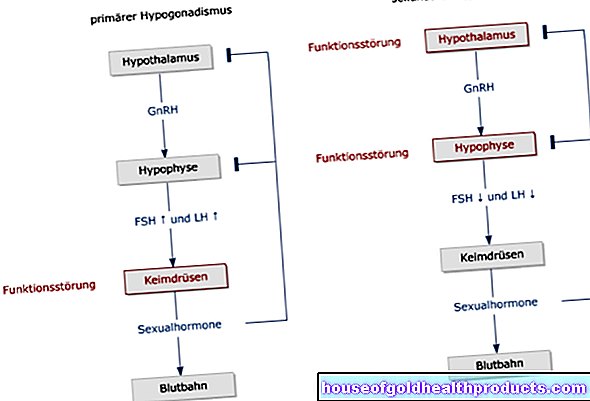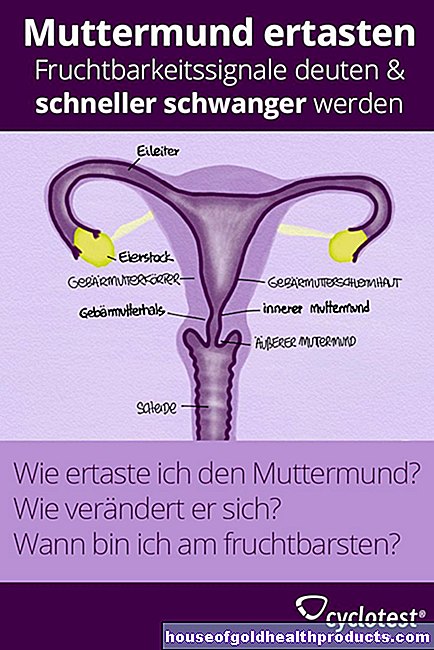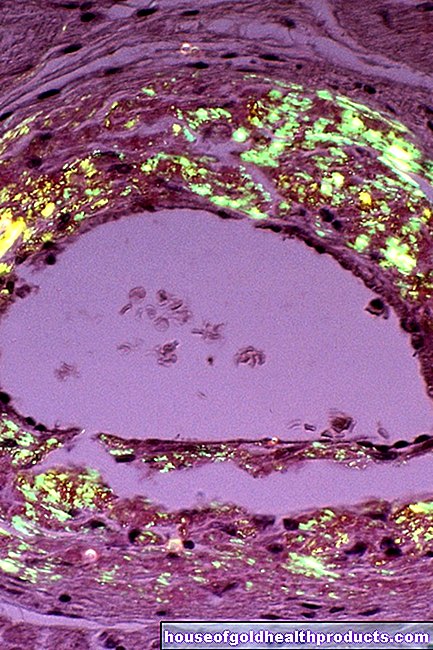No more brain tumors despite cell phones
All content is checked by medical journalists.Cell phones have been around for almost 30 years - and for almost that time there has been concern that their electromagnetic radiation could trigger brain tumors. Now a study from Australia gives the all-clear, at least partially.
In Australia, the cell phones were introduced in 1987. Today 94 percent of the population there use the portable telephones. Researchers have now investigated whether the number of brain tumors has also increased since then. To do this, they evaluated data from the National Cancer Register of Australia.
Slight increase due to better diagnostics?
In fact, between 1982 - five years before the introduction of cell phones - and 2013, 19,858 men and 14,222 women between the ages of 20 and 84 were diagnosed with brain tumors. “The incidence rate has remained the same in all age groups over the past 29 years. Except for those over 70, ”found Professor Simon Chapman and his team from the University of Sydney. The number of brain tumor diagnoses there has increased slightly.
"This increase began in 1982, when cell phones weren't even in use," Chapman continued. "We assume that improved medical technology will discover cancers today that would not have been found in the past."
Since the early 1980s, there have been comprehensive imaging methods such as computed tomography (CT) and magnetic resonance imaging (MRI), which make it easier for doctors to identify tumors hidden deep in organs.
The dose-effect relationship remains unclear
The study in Australia seems to prove that, contrary to what many scientists suspect, the advance of mobile phone technology has not caused an increase in the number of brain tumors there. It remains unclear, however, whether this statement applies to those who call a lot as well as to people who rarely use their mobile phones. Because the extent of individual cell phone use was not recorded in the study. A dose-effect relationship is well known for many other potential cancer triggers.
Brain tumors rather rare
According to the Robert Koch Institute, around 7,000 people in Germany develop benign or malignant brain tumors every year. This makes them one of the rare cancers. Treatment and prognosis depend on the type of tumor and vary widely. A brain tumor can be operated on, irradiated, or treated with chemotherapy drugs. Most diseases occur between the ages of 70 and 75. Men are more likely to be diagnosed with brain tumors than women. (vv)
Source: Simon Chapman, S. et al. 2016. Has the incidence of brain cancer risen in Australia since the introduction of mobile phones 29 years ago? Cancer Epidemiology. DOI: http://dx.doi.org/10.1016/j.canep.2016.04.010
Tags: baby toddler symptoms tcm



























.jpg)

